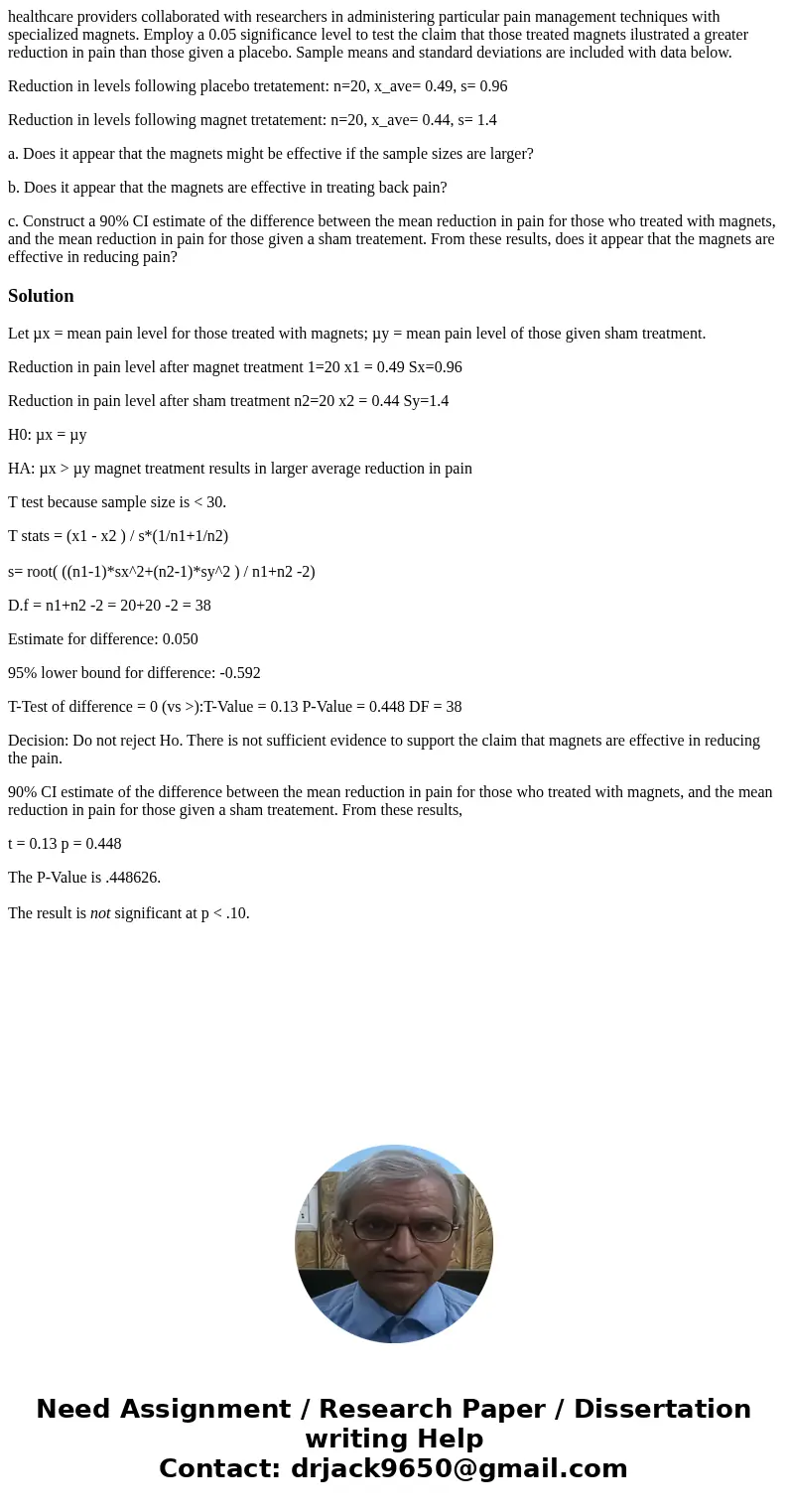healthcare providers collaborated with researchers in admini
healthcare providers collaborated with researchers in administering particular pain management techniques with specialized magnets. Employ a 0.05 significance level to test the claim that those treated magnets ilustrated a greater reduction in pain than those given a placebo. Sample means and standard deviations are included with data below.
Reduction in levels following placebo tretatement: n=20, x_ave= 0.49, s= 0.96
Reduction in levels following magnet tretatement: n=20, x_ave= 0.44, s= 1.4
a. Does it appear that the magnets might be effective if the sample sizes are larger?
b. Does it appear that the magnets are effective in treating back pain?
c. Construct a 90% CI estimate of the difference between the mean reduction in pain for those who treated with magnets, and the mean reduction in pain for those given a sham treatement. From these results, does it appear that the magnets are effective in reducing pain?
Solution
Let µx = mean pain level for those treated with magnets; µy = mean pain level of those given sham treatment.
Reduction in pain level after magnet treatment 1=20 x1 = 0.49 Sx=0.96
Reduction in pain level after sham treatment n2=20 x2 = 0.44 Sy=1.4
H0: µx = µy
HA: µx > µy magnet treatment results in larger average reduction in pain
T test because sample size is < 30.
T stats = (x1 - x2 ) / s*(1/n1+1/n2)
s= root( ((n1-1)*sx^2+(n2-1)*sy^2 ) / n1+n2 -2)
D.f = n1+n2 -2 = 20+20 -2 = 38
Estimate for difference: 0.050
95% lower bound for difference: -0.592
T-Test of difference = 0 (vs >):T-Value = 0.13 P-Value = 0.448 DF = 38
Decision: Do not reject Ho. There is not sufficient evidence to support the claim that magnets are effective in reducing the pain.
90% CI estimate of the difference between the mean reduction in pain for those who treated with magnets, and the mean reduction in pain for those given a sham treatement. From these results,
t = 0.13 p = 0.448
The P-Value is .448626.
The result is not significant at p < .10.

 Homework Sourse
Homework Sourse